Advertisement
Lead Story
1980Polish government signs accord with Gdansk shipyard workers
On this day in 1980, representatives of the communist government of Poland agree to the demands of striking shipyard workers in the city of Gdansk. Former electrician Lech Walesa led the striking workers, who went on to form Solidarity, the first independent labor union to develop in a Soviet bloc nation.
In July 1980, facing economic crisis, Poland’s government raised the price of food and other goods, while curbing the growth of wages. The price hikes made it difficult for many Poles to afford basic necessities, and a wave of strikes swept the country. Amid mounting tensions, a popular forklift operator named Anna Walentynowicz was fired from the Lenin Shipyard in the northern Polish city of Gdansk. In mid-August, some 17,000 of the shipyard’s workers began a sit-down strike to campaign for her reinstatement, as well as for a modest increase in wages. They were led by the former shipyard electrician Lech Walesa, who had himself been fired for union activism four years earlier.
Despite governmental censorship and attempts to keep news of the strike from getting out, similar protests broke out in industrial cities throughout Poland. On August 17, an Interfactory Strike Committee presented the Polish government with 21 ambitious demands, including the right to organize independent trade unions, the right to strike, the release of political prisoners and increased freedom of expression. Fearing the general strike would lead to a national revolt, the government sent a commission to Gdansk to negotiate with the rebellious workers. On August 31, Walesa and Deputy Premier Mieczyslaw Jagielski signed an agreement giving in to many of the workers’ demands. Walesa signed the document with a giant ballpoint pen decorated with a picture of the newly elected Pope John Paul II (Karol Wojtyla, the former archbishop of Krakow).
In the wake of the Gdansk strike, leaders of the Interfactory Strike Committee voted to create a single national trade union known as Solidarnosc (Solidarity), which soon evolved into a mass social movement, with a membership of more than 10 million people. Solidarity attracted sympathy from Western leaders and hostility from Moscow, where the Kremlin considered a military invasion of Poland. In late 1981, under Soviet pressure, the government of General Wojciech Jaruzelski annulled the recognition of Solidarity and declared martial law in Poland. Some 6,000 Solidarity activists were arrested, including Walesa, who was detained for almost a year. The Solidarity movement moved underground, where it continued to enjoy support from international leaders such as U.S. President Ronald Reagan, who imposed sanctions on Poland. Walesa was awarded the 1983 Nobel Peace Prize, and after the fall of communism in 1989 he became the first president of Poland ever to be elected by popular vote.
RELATED VIDEOS
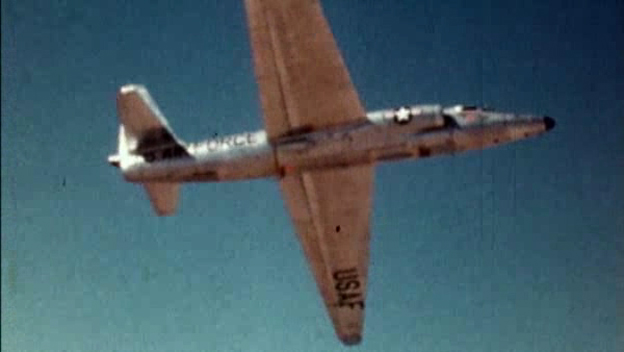 VIDEOPlay videoThe U2 Program
VIDEOPlay videoThe U2 Program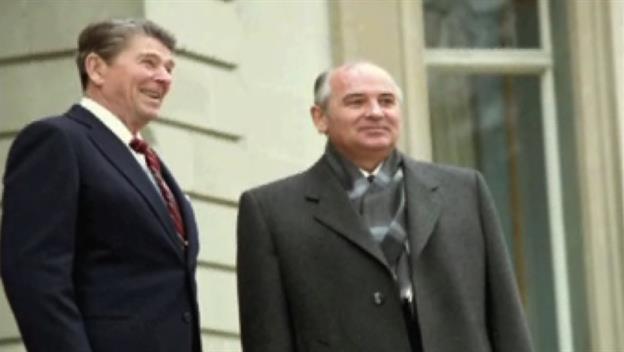 VIDEOPlay videoReagan Meets Gorbachev
VIDEOPlay videoReagan Meets Gorbachev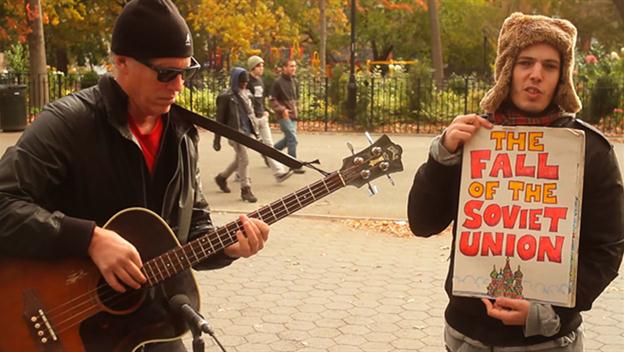 VIDEOPlay videoThe Fall of the Soviet Union
VIDEOPlay videoThe Fall of the Soviet Union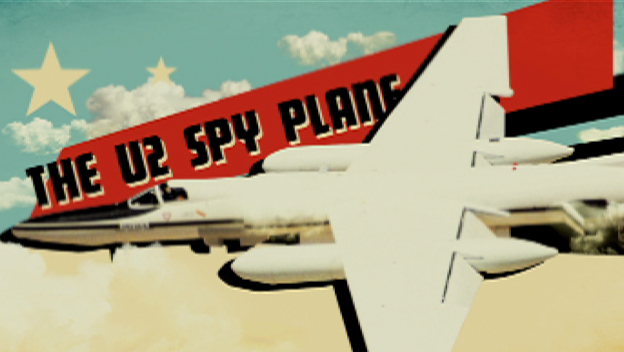 VIDEOPlay videoCold War
VIDEOPlay videoCold War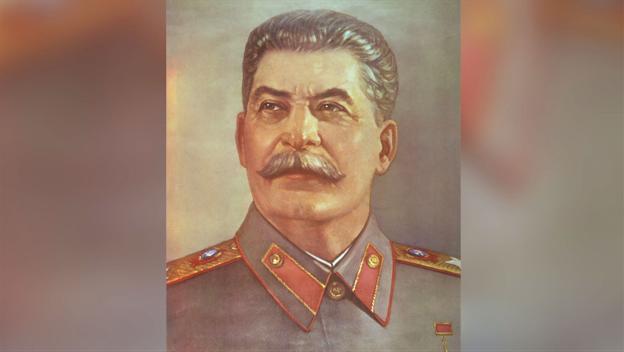 VIDEOPlay videoJoseph Stalin
VIDEOPlay videoJoseph Stalin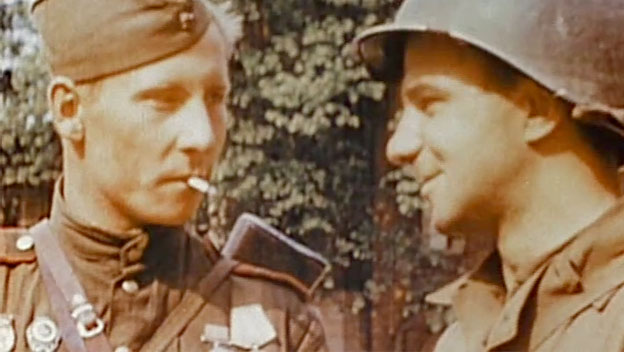 VIDEOPlay videoFriend or Enemy?
VIDEOPlay videoFriend or Enemy?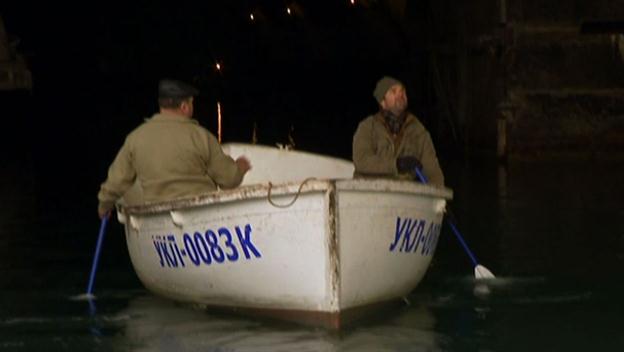 VIDEOPlay videoSoviet Submarine Bases
VIDEOPlay videoSoviet Submarine Bases VIDEOPlay videoBay of Pigs: CIA's 'Perfect Failure'
VIDEOPlay videoBay of Pigs: CIA's 'Perfect Failure'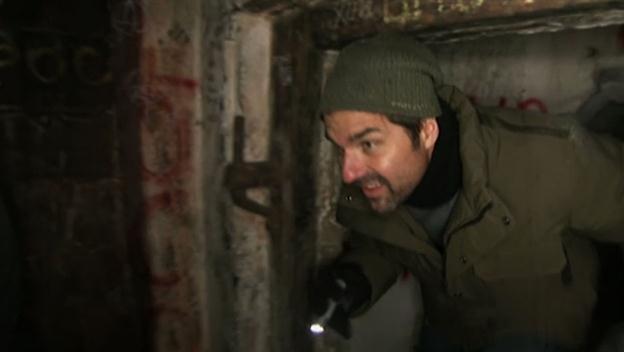 VIDEOPlay videoStalin's Communications Bunker
VIDEOPlay videoStalin's Communications Bunker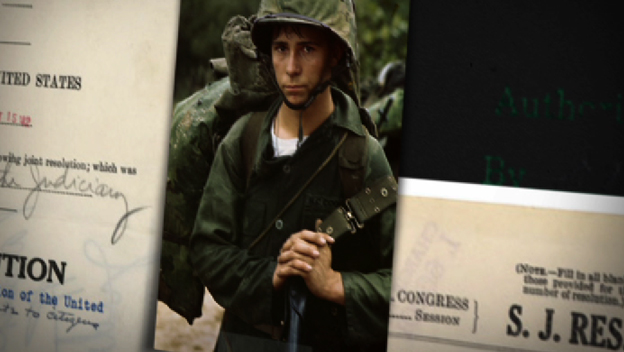 VIDEOPlay videoThe Road to War
VIDEOPlay videoThe Road to War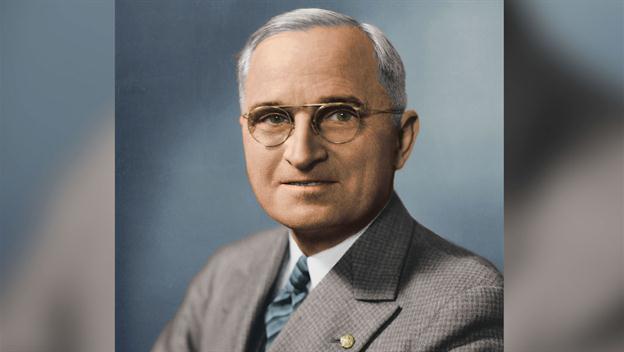 VIDEOPlay videoHarry S. Truman
VIDEOPlay videoHarry S. Truman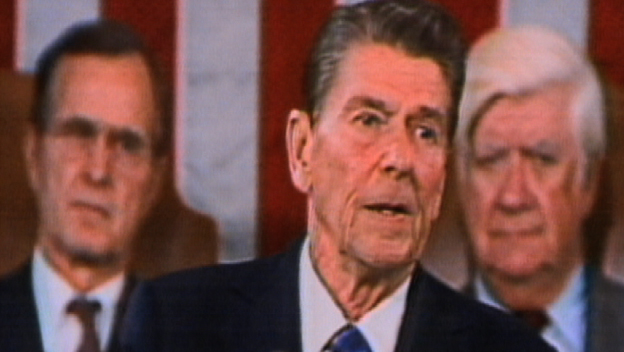 VIDEOPlay videoThe Great Communicator
VIDEOPlay videoThe Great Communicator
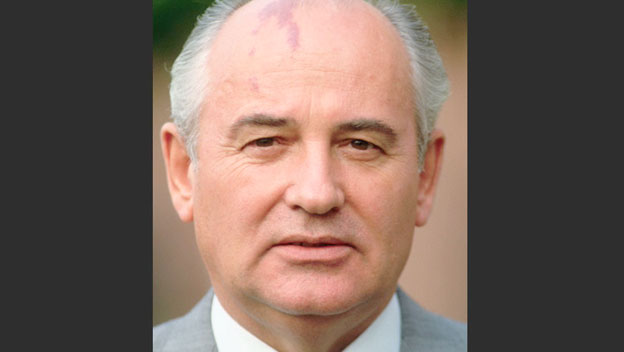 AUDIOPlay videoMikhail Gorbachev Resigns
AUDIOPlay videoMikhail Gorbachev Resigns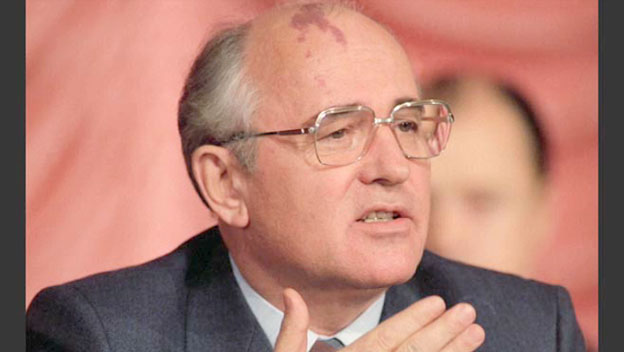 AUDIOPlay videoMikhail Gorbachev Arrives in U.S.
AUDIOPlay videoMikhail Gorbachev Arrives in U.S. TOPICPerestroika and Glasnost
TOPICPerestroika and Glasnost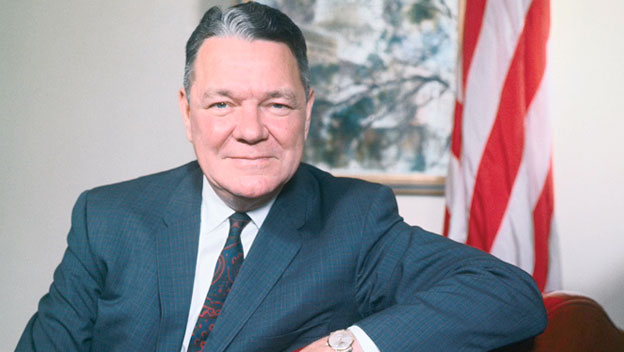 AUDIOPlay videoU.S. Receives News of Soviet Invasion of Czechoslovakia
AUDIOPlay videoU.S. Receives News of Soviet Invasion of Czechoslovakia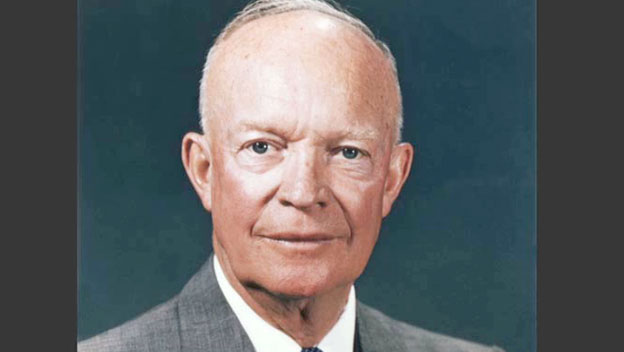 AUDIOPlay videoEisenhower's 3 Imperatives for World Peace
AUDIOPlay videoEisenhower's 3 Imperatives for World Peace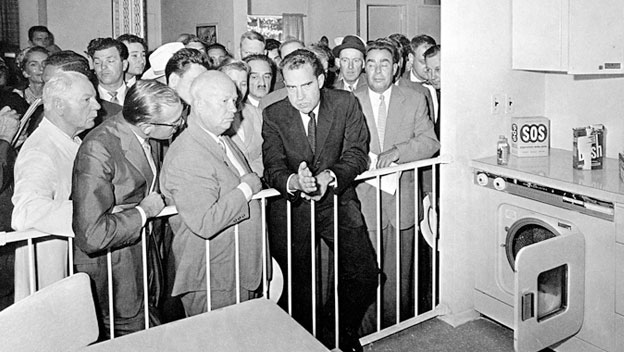 AUDIOPlay videoThe Kitchen Debate
AUDIOPlay videoThe Kitchen Debate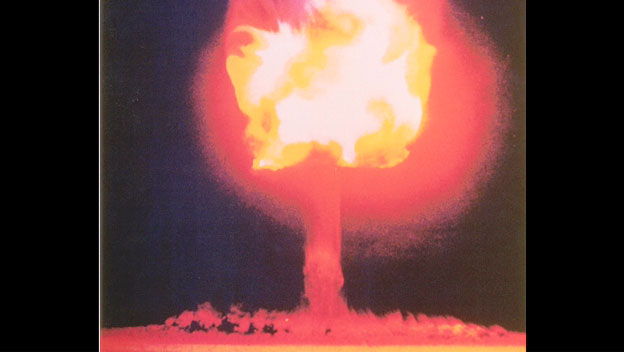 AUDIOPlay videoRussia Has A-Bomb
AUDIOPlay videoRussia Has A-Bomb AUDIOPlay videoCarter Calls for Boycott of 1980 Moscow Olympics
AUDIOPlay videoCarter Calls for Boycott of 1980 Moscow Olympics TOPICFall of the Soviet Union
TOPICFall of the Soviet Union TOPICNuclear Test-Ban Treaty
TOPICNuclear Test-Ban Treaty NEWSCIA Used “Dr. Zhivago” as Cold War Weapon
NEWSCIA Used “Dr. Zhivago” as Cold War Weapon TOPICCuban Missile Crisis
TOPICCuban Missile Crisis
ALSO ON THIS DAY
American Revolution
1777
Samuel Mason, a Patriot captain in command of Fort Henry on the Ohio frontier, survives a devastating Indian attack on this day in 1777. The son of a distinguished Virginia family, Samuel Mason became a militia officer and was assigned to the western frontier post of Fort Henry in present-day West...
Automotive
1955
On this day in 1955, William G. Cobb of the General Motors Corp. (GM) demonstrates his 15-inch-long “Sunmobile,” the world’s first solar-powered automobile, at the General Motors Powerama auto show held in Chicago, Illinois. Cobb’s Sunmobile introduced, however briefly, the field of photovoltaics–the process by which the sun’s rays are...
Civil War
1864
On this day in 1864, at the Battle of Jonesboro, Georgia, General William T. Sherman launches the attack that finally secures Atlanta, Georgia, for the Union, and seals the fate of Confederate General John Bell Hood’s army, which is forced to evacuate the area. The Battle of Jonesboro was the culmination...
Cold War
1951
Following a hiking and mountain climbing trip through Asia, Supreme Court Justice William O. Douglas issues a statement calling for the recognition of the communist People’s Republic of China. His comments touched off an angry partisan debate in the U.S. Senate. Douglas spent much of the summer of 1951 hiking...
Crime
1985
Richard Ramirez, the notorious “Night Stalker,” is captured and nearly killed by a mob in East Los Angeles, California, after being recognized from a photograph shown both on television and in newspapers. Recently identified as the serial killer, Ramirez was pulled from the enraged mob by police officers. During the summer...
Advertisement
Disaster
1886
An earthquake near Charleston, South Carolina, on this day in 1886 leaves more than 100 people dead and hundreds of buildings destroyed. This was the largest recorded earthquake in the history of the southeastern United States. The earthquake was preceded by foreshocks felt in Summerville, South Carolina, on August 27 and...
General Interest
1888
Prostitute Mary Ann Nichols, the first victim of London serial killer “Jack the Ripper,” is found murdered and mutilated in Whitechapel’s Buck’s Row. The East End of London saw four more victims of the murderer during the next few months, but no suspect was ever found.In Victorian England, London’s East...
1897
Thomas Edison receives a patent for his movie camera, the Kinetograph. Edison had developed the camera and its viewer in the early 1890s and staged several demonstrations. The camera was based on photographic principles discovered by still-photograph pioneers Joseph Nicephone Niepce and Louis Daguerre of France. In 1877, inventor Edward Muybridge...
1939
At noon, despite threats of British and French intervention, Nazi leader Adolf Hitler signs an order to attack Poland, and German forces move to the frontier. That evening, Nazi S.S. troops wearing Polish uniforms staged a phony invasion of Germany, damaging several minor installations on the German side of the...
Hollywood
1949
On this day in 1949, Richard Gere, the star of such hit films as An Officer and a Gentleman, Pretty Woman and Chicago, is born in Philadelphia, Pennsylvania. Gere was raised in the Syracuse, New York area and attended the University of Massachusetts at Amherst on a gymnastics scholarship. He left...
Advertisement
Literary
1908
William Saroyan, the son of an Armenian immigrant, is born in Fresno on this day in 1908. Saroyan’s father died when the boy was only three, and he was raised in an orphanage. His mother later reunited the family. To earn extra money for the family, Saroyan started selling newspapers on...
Music
1928
Die Dreigroschenoper (The Threepenny Opera) receives its world premiere in Berlin on August 31, 1928. “I think I’ve written a good piece and that several numbers in it, at least musically, have the best prospects for becoming popular very quickly.” This was the assessment offered by the German composer Kurt Weill...
Old West
1777
Samuel Mason, a captain in command of Fort Henry on the Ohio frontier, survives a devastating Indian attack only to become one of the young nation’s first western desperados. The son of a distinguished Virginia family, Samuel Mason became a militia officer and was assigned to the western frontier post of...
Presidential
1935
On this day in 1935, President Franklin D. Roosevelt signs the Neutrality Act, or Senate Joint Resolution No. 173, which he calls an “expression of the desire…to avoid any action which might involve [the U.S.] in war.” The signing came at a time when newly installed fascist governments in Europe...
Sports
1959
On August 31, 1959, Brooklyn Dodgers left-hander Sandy Koufax strikes out 18 batters, setting a new National League record for most strikeouts in a single game. Sandy Koufax was a talented all-around athlete from Borough Park in Brooklyn, New York. His first love was basketball, and he attended the University of...
Advertisement
Vietnam War
1955
Secretary of State John Foster Dulles supports South Vietnamese President Ngo Dinh Diem’s position regarding his refusal to hold “national and general elections” to reunify the two Vietnam states. Although these elections were called for by the Geneva Accords of July 1954, Diem and his supporters in the United...
1965
Premier Nguyen Cao Ky announces that South Vietnam would not negotiate with the Communists without guarantees that North Vietnamese troops would be withdrawn from the South. He also said that his government would institute major reforms to correct economic and social injustices. Also on this day: In the...
1967
Senate Preparedness Investigating Committee issues a call to step up bombing against the North, declaring that McNamara had “shackled” the air war against Hanoi, and calling for “closure, neutralization, or isolation of Haiphong.” President Johnson, attempting to placate Congressional “hawks” and the Joint Chiefs of Staff, expanded the approved...
1970
In South Vietnam, antigovernment Buddhist candidates appear to win 10 of 30 Senate seats contested in the previous day’s election. However, the Senate as a whole remained in the firm control of conservative, pro-government supporters. Catholics still held 50 percent of the Senate seats, even though they constituted only...
1972
U.S. weekly casualty figures of five dead and three wounded are the lowest recorded since record keeping began in January 1965. These numbers reflected the fact that there were less than 40,000 American troops left in South Vietnam by this time and very few of these were involved in...
No comments:
Post a Comment
Please leave a comment-- or suggestions, particularly of topics and places you'd like to see covered